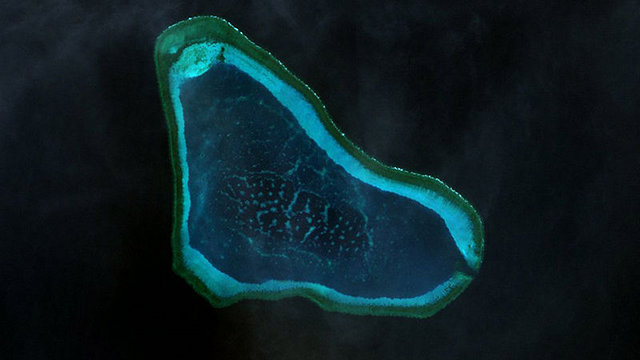
PH VS
The
“There's such a thing as freedom of navigation. A big percentage of world trade passes through our waters – waters that are a subject of dispute right now,” Philippine Presidential Spokesman Edwin Lacierda said in a press briefing.
Referring to the
Lacierda issued this statement after
Chinese Foreign Ministry spokeswoman Hua Chunying said: “The alliance between the
She added
This position includes rejecting third parties in settling maritime conflicts, such as the United Nations (UN) tribunal before which
READ: PH-China dispute 'acid test' for int'l law - Carpio
For analysts, this also involves a view on sea freedom that diverges from other countries' interpretations.
'Respect' for sea freedom
Three days before
The 3 released this statement after the 5th ministers' meeting of the Trilateral Strategic Dialogue.
The meeting took place on the sidelines of the Asia-Pacific Economic Cooperation (APEC) ministerial meeting in
READ: Will he be 'rude' again? Aquino backs peace at ASEAN Summit
The diplomats said in their statement: “The ministers affirmed the importance of peace and stability, respect for international law, unimpeded trade, and freedom of navigation in the
"They called on claimants to refrain from actions that could increase tensions, to clarify and pursue claims in accordance with international law, including the 1982 United Nations Convention on the Law of the Sea (UNCLOS), and for ASEAN and
Opposing
The UNCLOS, the UN convention that governs maritime disputes, upholds freedom of navigation.
Under Article 58, the UNCLOS says a state has the right to navigate another state's exclusive economic zone (EEZ), an area 200 nautical miles from the state's baselines. The convention, however, maintains that a state has “sovereign rights for the purpose of exploring and exploiting, conserving and managing the natural resources” within its EEZ.
The authors say: “There are disagreements between them over navigational rights, with China asserting that military activities may not be undertaken in the exclusive economic zones of coastal states without their consent, while the US believes the EEZs are international waters in which all states’ rights to freedom of navigation and overflight are assured, subject only to the sovereign rights of coastal states to economically exploit the resources within their own EEZs.”
The
READ: US, PH vow freedom of navigation amid Asia sea rows
"We share a common interest in maintaining freedom of navigation, unimpeded lawful commerce, and transit of people and goods across the seas," said Philippine military chief General Emmanuel Bautista and General Martin Dempsey, chairman of the US Joint Chiefs of Staff, in a statement last August 22.
http://www.rappler.com/nation/40756-ph-freedom-navigation-china-apec

No comments:
Post a Comment
Note: Only a member of this blog may post a comment.